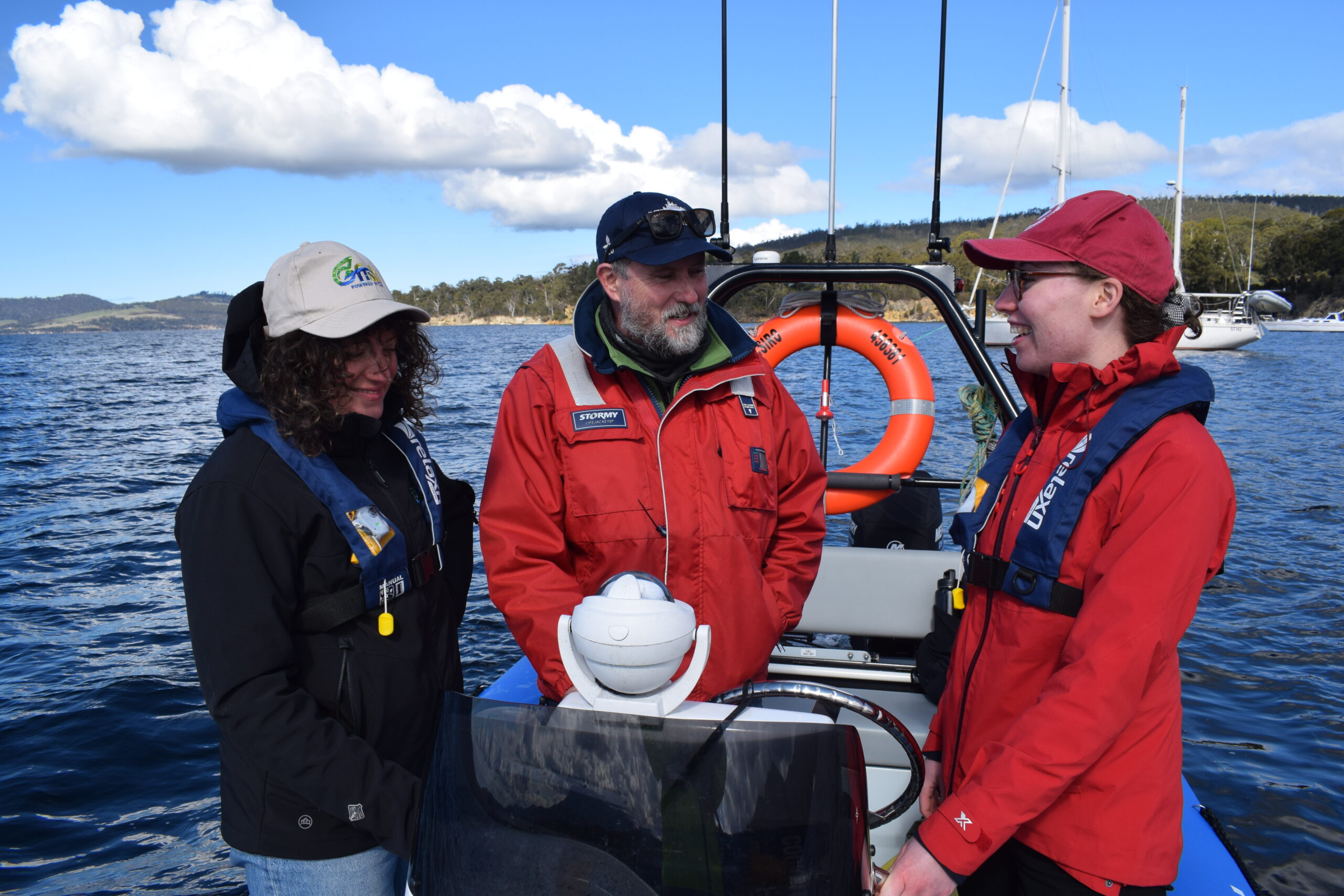Natural Resource Management South, working in partnership with CSIRO and OzFish Unlimited, are calling on volunteers with moorings at North West Bay to swap their traditional moorings for a new environmentally friendly mooring as part of an Australian Government funded fish habitat restoration project.
North West Bay, near the southern coastal community of Margate, is a popular and important recreational fishing area – and also an important area for seagrass habitat. While traditional chain moorings damage seagrass by scouring the seabed, this can be avoided by using what is known as an Environmentally Friendly Mooring (EFM), an innovation that is helping to restore seagrass communities across our nation’s coastlines.
Around 25% of Tasmanians are recreational fishers. NRM South’s marine project officer Grace Isdale is leading an initiative to improve engagement with the recreational fisher community in southern Tasmania and highlight the importance of seagrass communities to recreationally valuable fish species.
‘Seagrass meadows act as a kind of fish nursery’, Grace explained. ‘Recreationally valuable fish species such as Southern calamari and Gould’s squid rely on seagrass meadows. These species spend part of their life cycle in these areas, which act as a refuge to shelter from predators and strong currents. Restoring this habitat is a win-win both for recreational fishers and our marine environment.’
CSIRO, Australia’s national science agency, has developed novel solutions to make it easier and cheaper to install EFMs. To encourage the transition from traditional moorings to EFMs in North West Bay, twelve of these new moorings will be supplied free of charge. CSIRO will study their effectiveness, and design improvements, over the first two years.
Dr. Tim Lynch, Senior Research Scientist from the CSIRO, is part of a team that has been working on an EFM system for the past six years and details the knowledge that has been developed over this time.
‘We’ve seen benefits to both boat owners and the environment from the moorings we’ve already installed’ said Tim. ‘The EFMs in North West Bay are a unique Australian design based on our science. They are a safer option in high wind conditions, and while the initial costs for boat owners are about the same as a traditional mooring, the servicing costs for EFMs may work out to be cheaper in the long run.’
Tim added that as well as being rolled out more broadly in Tasmania – including through this NRM South supported project – the technology is also being expanded into New South Wales.
This project, set to run until June 2023, is supported by NRM South through funding from the Australian Government’s Fisheries Habitat Restoration Program.
-Ends-
